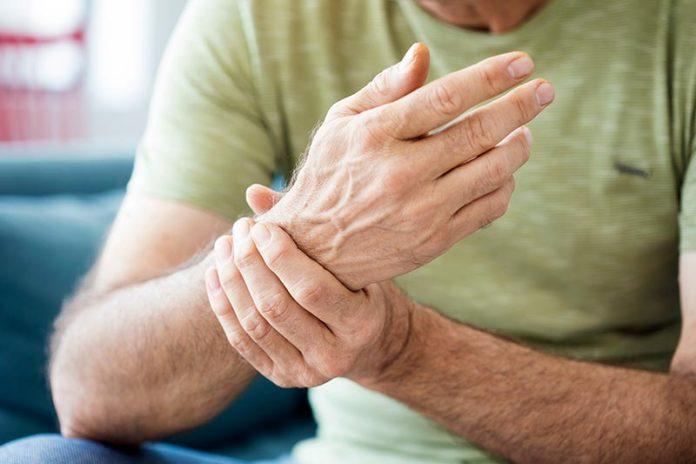Introduction Arthritis is a debilitating condition that affects millions of people worldwide, causing pain, stiffness, and limited mobility in the joints. While the symptoms of arthritis are well-known, understanding the root cause of this condition is crucial for effective prevention and management. If you’re experiencing persistent joint pain or mobility issues, it’s essential to consult an best orthopedic doctor in bangalore. These specialists are trained in diagnosing and treating musculoskeletal conditions, including arthritis, and can provide personalized guidance and treatment plans.
Types of Arthritis
Arthritis is a broad term that encompasses various types of joint disorders. While the root causes may differ, the common denominator is inflammation and degeneration of the joints. Here are some of the most prevalent types of arthritis:
- Osteoarthritis
- Rheumatoid Arthritis
- Psoriatic Arthritis
- Gout
- Ankylosing Spondylitis
Root Causes of Arthritis
- Genetic Factors Genetics play a significant role in the development of certain types of arthritis, particularly rheumatoid arthritis and ankylosing spondylitis. Specific gene variations can increase an individual’s susceptibility to these autoimmune forms of arthritis.
- Age and Wear-and-Tear As we age, the cartilage that cushions our joints gradually wears down, leading to osteoarthritis. This natural degeneration process is exacerbated by factors such as obesity, joint injuries, and repetitive stress on the joints over time.
- Autoimmune Disorders In autoimmune forms of arthritis, like rheumatoid arthritis and psoriatic arthritis, the body’s immune system mistakenly attacks its own healthy tissues, including the joints, leading to inflammation and joint damage.
- Metabolic Abnormalities Metabolic disorders, such as gout, can cause the buildup of uric acid crystals in the joints, triggering inflammation and arthritis symptoms.
- Injuries and Trauma Joint injuries, such as sprains, fractures, or dislocations, can increase the risk of developing osteoarthritis later in life. These injuries can damage the cartilage, bone, and surrounding tissues, leading to joint degeneration over time.
- Obesity and Excess Weight Carrying excess body weight puts additional stress on weight-bearing joints, like the knees and hips, leading to accelerated cartilage breakdown and osteoarthritis.
- Inflammatory Conditions Certain inflammatory conditions, such as psoriasis, inflammatory bowel disease, and lupus, can increase the risk of developing inflammatory forms of arthritis.
- Occupational and Lifestyle Factors Repetitive movements, physically demanding jobs, and certain sports or activities that place excessive stress on the joints can contribute to the development of osteoarthritis over time.
Prevention and Management Strategies
While some root causes of arthritis, such as genetics and age, are beyond our control, there are several preventive measures and management strategies that can help mitigate the risk and impact of arthritis:
- Maintain a Healthy Weight Maintaining a healthy body weight can significantly reduce the stress on weight-bearing joints and lower the risk of developing osteoarthritis.
- Exercise Regularly Regular exercise, particularly low-impact activities like swimming or cycling, can help strengthen the muscles around the joints, improve flexibility, and promote overall joint health.
- Adopt Proper Posture and Body Mechanics Practicing good posture and using proper body mechanics when lifting or carrying objects can reduce the strain on joints and prevent potential injuries.
- Manage Underlying Conditions For those with autoimmune disorders or metabolic conditions, working closely with healthcare professionals to manage the underlying condition can help prevent or slow the progression of arthritis.
- Quit Smoking Smoking has been linked to an increased risk of developing rheumatoid arthritis and can exacerbate the symptoms of other forms of arthritis.
- Eat a Balanced Diet A diet rich in anti-inflammatory foods, such as fruits, vegetables, and fatty fish, can help reduce inflammation and promote joint health.
- Consider Supplements and Alternative Therapies While more research is needed, some supplements (e.g., glucosamine and chondroitin) and alternative therapies (e.g., acupuncture, massage) may provide relief for certain types of arthritis.
Conclusion
Arthritis is a complex condition with various root causes, ranging from genetics and age to autoimmune disorders and injuries. Understanding these underlying factors is crucial for developing effective prevention and management strategies. By adopting a proactive approach, maintaining a healthy lifestyle, and seeking guidance from Orthopedic Doctor, individuals can take steps to mitigate the risk and impact of arthritis, ultimately improving their overall quality of life.
